
Finally Got the News (1970)
Жанр : документальный
Время выполнения : 57М
Директор : Stewart Bird, Rene Lichtman, Peter Gessner
Краткое содержание
FINALLY GOT THE NEWS is a forceful, unique documentary that reveals the activities of the League of Revolutionary Black Workers inside and outside the auto factories of Detroit. Through interviews with the members of the movement, footage shot in the auto plants, and footage of leafleting and picketing actions, the film documents their efforts to build an independent black labor organization that, unlike the UAW, will respond to worker's problems, such as the assembly line speed-up and inadequate wages faced by both black and white workers in the industry. Beginning with a historical montage, from the early days of slavery through the subsequent growth and organization of the working class, FINALLY GOT THE NEWS focuses on the crucial role played by the black worker in the American economy. Also explored is the educational 'tracking' system for both white and black youth, the role of African American women in the labor force, and relations between white and black workers.
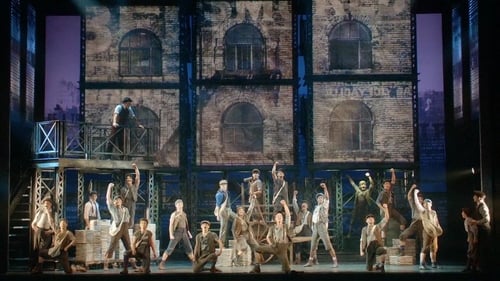
The rousing tale of Jack Kelly, a charismatic newsboy and leader of a ragged band of teenaged 'newsies,' who dreams only of a better life far from the hardship of the streets. When publishing titans raise distribution prices at the newsboys' expense, Jack finds a cause to fight for and rallies newsies from across the city to strike and take a stand for what's right.
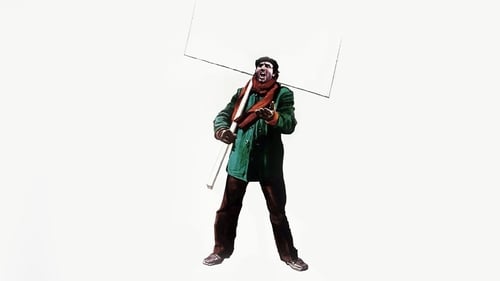
A Sicilian worker, a member of the internal commission in a factory in Bergamasco, believes he has won it over the owner because he has obtained important improvements, but the astute employer sells the company to a multinational company.

A very human tech doc, uncovers the real costs of the platform economy through the lives of workers from around the world for companies including Uber, Amazon and Deliveroo. From delivering food and driving ride shares to tagging images for AI, millions of people around the world are finding work task by task online. The gig economy is worth over 5 trillion USD globally, and growing. And yet the stories of the workers behind this tech revolution have gone largely neglected. Who are the people in this shadow workforce? It brings their stories into the light. Lured by the promise of flexible work hours, independence, and control over time and money, workers from around the world have found a very different reality. Work conditions are often dangerous, pay often changes without notice, and workers can effectively be fired through deactivation or a bad rating. Through an engaging global cast of characters, it reveals how the magic of technology we are being sold might not be magic at all.

Circumstances force the union leader of a factory to marry his own boss, a rich and arrogant lady who has ulterior motives.
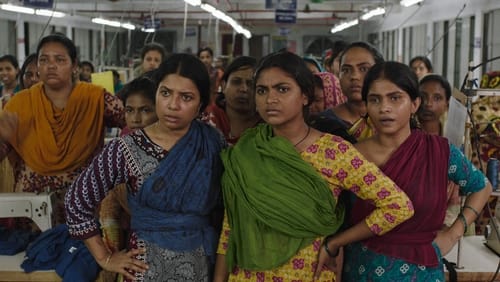
Шиму сбежала из деревни ещё ребёнком, когда её мачеха пригрозила выдать её за мужчину средних лет. Теперь ей 23, и она живет в столице, трудится по мучительному графику за ничтожную зарплату на текстильной фабрике, пока её муж безуспешно ищет работу.

There are 200 miserably impoverished people working in the Dongseong Metalworks Factory. JU Wan-ik is introduced to the forging team as a new member of the team and they all go drinking together to welcome him.
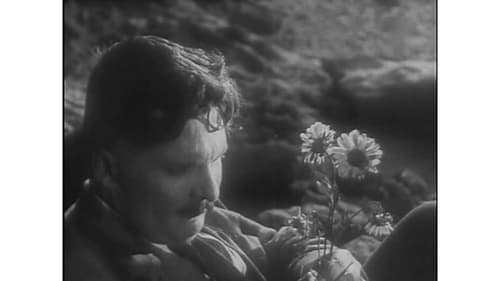
Место действия — Южная Америка. Рабочий-революционер Хозе Реаль, приговорённый к пожизненному заключению, получает «день свободы». Зная о том, что тюремная администрация прибегает в этих случаях к внесудебной расправе над политическим заключённым, Реаль намерен отказаться от своего права. В последний момент он узнаёт от товарищей, что на воле он может быть полезен для революционной борьбы. Жозе Реаль без колебаний меняет своё решение и, получив «день свободы», едет домой. Реаля тайно сопровождает переодетый в штатское платье полицейский агент, получивший задание убить заключённого. Однако агент не выполняет задание: Хозе Реаля берут под защиту рабочие. С помощью друзей Хозе возвращается к революционной работе, он становится во главе стачечного комитета революционеров-подпольщиков.

It was women who closed the gates and launched the Solidarity strike when, on a Saturday in August 1980, workers, satisfied with a raise, stopped their protest and wanted to leave the Gdansk shipyard. If it had not been for the initiative of several determined women, perhaps there would not have been any August 1980 in Polish history. Under martial law, with the men in prisons, the women took on their role. They were not interested neither in joining the union’s power structure, nor in particular posts. The most important thing was their work and its results. When communism in Poland came to an end on June 4, 1989, the vast majority of women in Solidarity disappeared from the political stage. They let themselves be forgotten when their colleagues were taking over the most important posts in power in a free Poland. This documentary by Marta Dzido and Piotr Śliwowski reminds us about these forgotten heroines, giving us a new perspective on the last 30 years of Polish history.

FINALLY GOT THE NEWS is a forceful, unique documentary that reveals the activities of the League of Revolutionary Black Workers inside and outside the auto factories of Detroit. Through interviews with the members of the movement, footage shot in the auto plants, and footage of leafleting and picketing actions, the film documents their efforts to build an independent black labor organization that, unlike the UAW, will respond to worker's problems, such as the assembly line speed-up and inadequate wages faced by both black and white workers in the industry. Beginning with a historical montage, from the early days of slavery through the subsequent growth and organization of the working class, FINALLY GOT THE NEWS focuses on the crucial role played by the black worker in the American economy. Also explored is the educational 'tracking' system for both white and black youth, the role of African American women in the labor force, and relations between white and black workers.

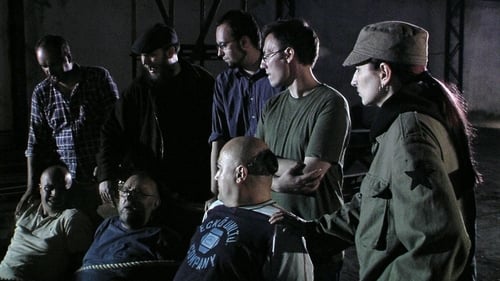
Докудрама Желимира Жилника "Старая школа капитализма" основана на событиях первой волны рабочих протестов, охвативших Сербию после проведения приватизации и ознаменовавших собой приход капитализма. Рабочие, которые не получали свою зарплату уже несколько месяцев, ломают заводские ворота и обнаруживают что цех завода пуст, а всё оборудование и станки уже вывезены и проданы владельцами. И пока рабочие решают что делать дальше, группа молодых анархистов предлагает им свою помощь и берёт владельцев в заложники, не собираясь на этом останавливаться...

Biographical portrait of the labor movement and left wing movement in Uruguay, "Conversations with Turiansky" combines two stories. The first portrays the son of immigrants, the engineer passionate about the mystery of electricity, the man in love, the movie buff. The other places the protagonist in his time: union struggles, the advance of authoritarianism, prison and the challenges of the present. In both are present the lucidity, commitment, discreet tenderness and humor of Wladimir Turiansky.

Since its adoption in June 1955 by the Congress movement, the Freedom Charter has been the key political document that acted as a beacon and source of inspiration in the liberation struggle against Apartheid. It was reputedly the main source that informed democratic South Africa’s liberal constitution and a constant reference point for the ruling African National Congress (ANC) and rival political parties that it spawned since 1994, all claiming the Freedom Charter’s legacy. Freedom Isn’t Free assesses the history and role of the charter, especially in relation to key political and socio-economic aspects of developments in South Africa up to the present period. It includes rare archival footage with interviews of a cross-section of outspoken influential South Africans.

A film documenting work shortages during the Depression of the 1930s and the attempts to deal with the unemployed, in particular young men. The film discusses the establishment of relief camps and projects, where men were paid twenty cents per day; the founding of organizations such as the Co-operative Commonwealth Federation (CCF), Workers' Unity League, and Relief Camp Workers' Union; general unionization and protest of the unemployed, including the On To Ottawa Trek, Regina Riot, sit-in strike from May to June 1938 at the Vancouver Main Post Office, Vancouver Art Gallery and Hotel Georgia, and the resulting Bloody Sunday of June 19.
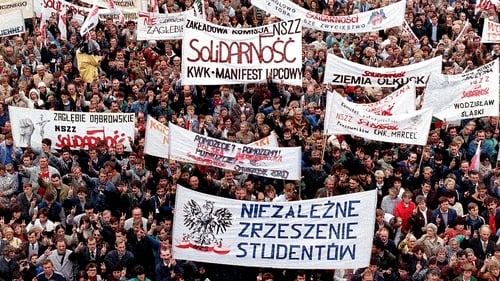
Gdańsk, Poland, September 1980. Lech Wałęsa and other Lenin shipyard workers found Solidarność (Solidarity), the first independent trade union behind the Iron Curtain. The long and hard battle to bring down communist dictatorship has begun.
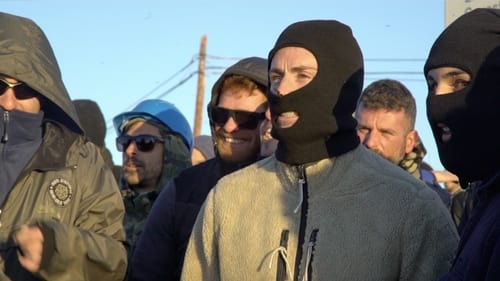
An explosion in one of the largest chemical plants in Europe, the Petrochemical complex in Tarragona, triggers the labour struggle of a group of workers who demand what is fair for everyone.

The film investigates an industry considered one of the pillars of growth during Kirchnerism in which, during these years, relations and conflicts were drawn between the manufacturers - foreign in its entirety -, the auto parts companies, the Argentine government, the Brazilian one, the union leaderships. -centrally from SMATA-, the workers and the left. The documentary delves into the interests that intersect and the confrontations that originate between the different actors in the chain, which became clear in recent times when the industry, which aspired to reach one million cars manufactured per year, began to regress. The different actors of the "Journey to the Center of Production" are intertwined in the conflict of the auto parts company Gestamp, which opened a dispute regarding who pays for the crisis in the sector and what solutions are seen in that dispute.

Наши герои начисто лишены стыда и инстинкта самосохранения, совсем не обращают внимания на боль и с удовольствием будут мучить себя и других!

For a book project, photographer Timothy Greenfield-Sanders took photographs of 30 stars of adult movies, each pair of photographs in the same pose, clothed and nude. This film records the photo shoots and includes interviews with the performers and commentary from eight writers (and John Waters). The actors and writers discuss economics, nudity and exhibitionism, careers, and private lives.
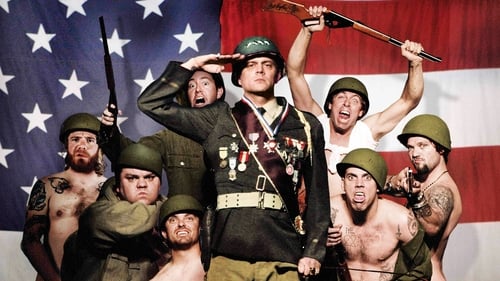
Компания великовозрастных отморозков возвращается, чтобы поднять ставки выше, чем когда-либо. Они совершают перед камерой настолько изощренное членовредительство, такие сумасшедшие трюки, которые точно никому не стоит пытаться повторять. Вы готовы спрыгнуть с моста, будучи привязанным за причинное место к другому человеку?














